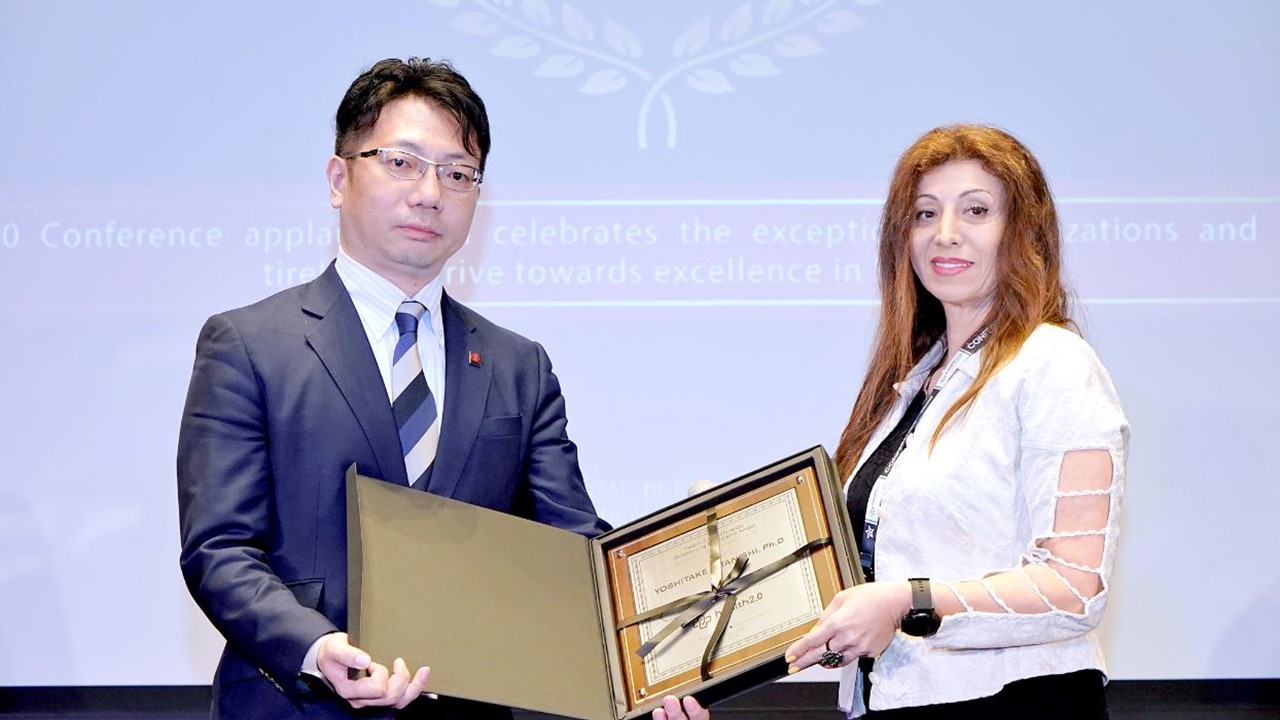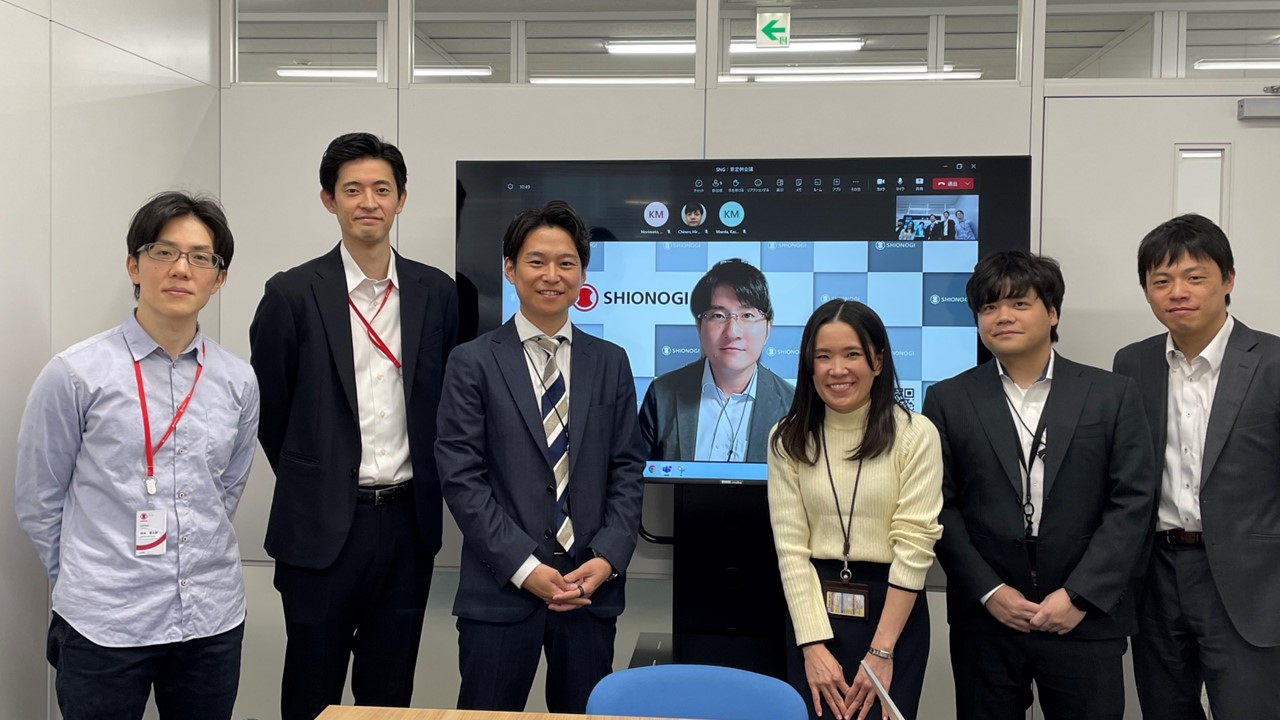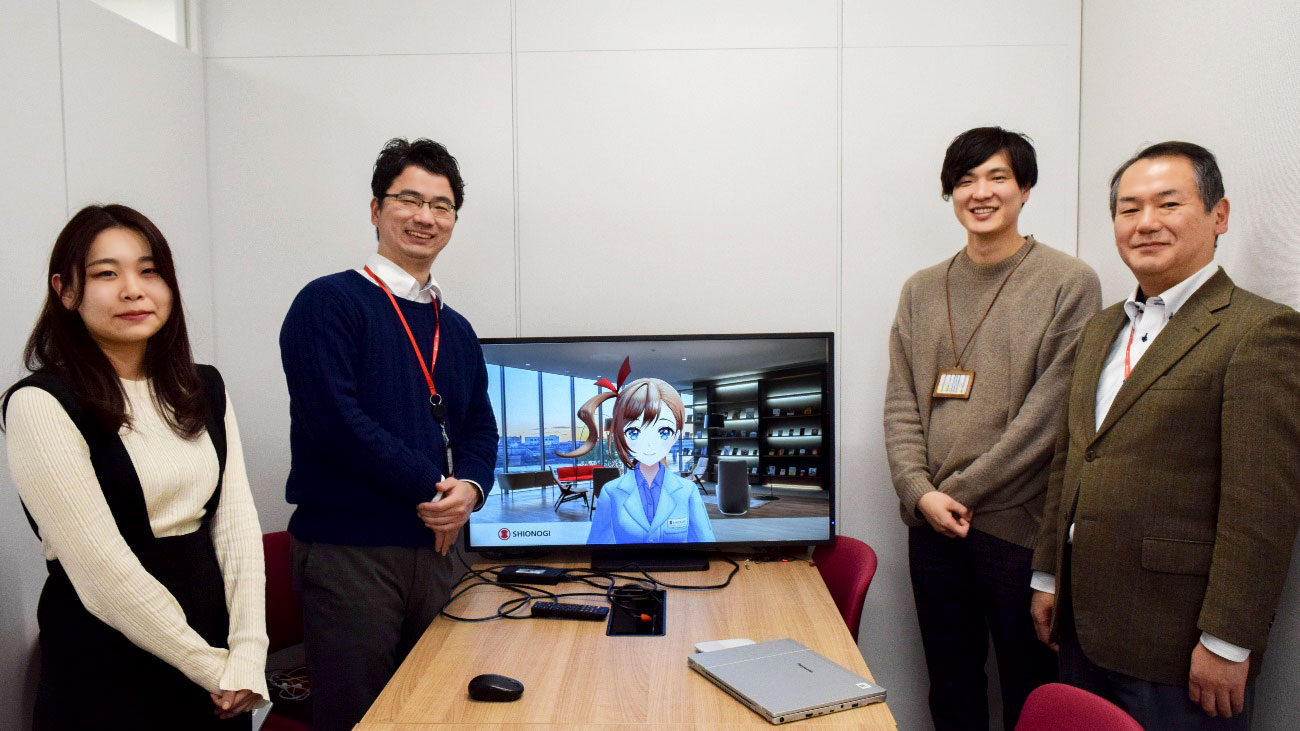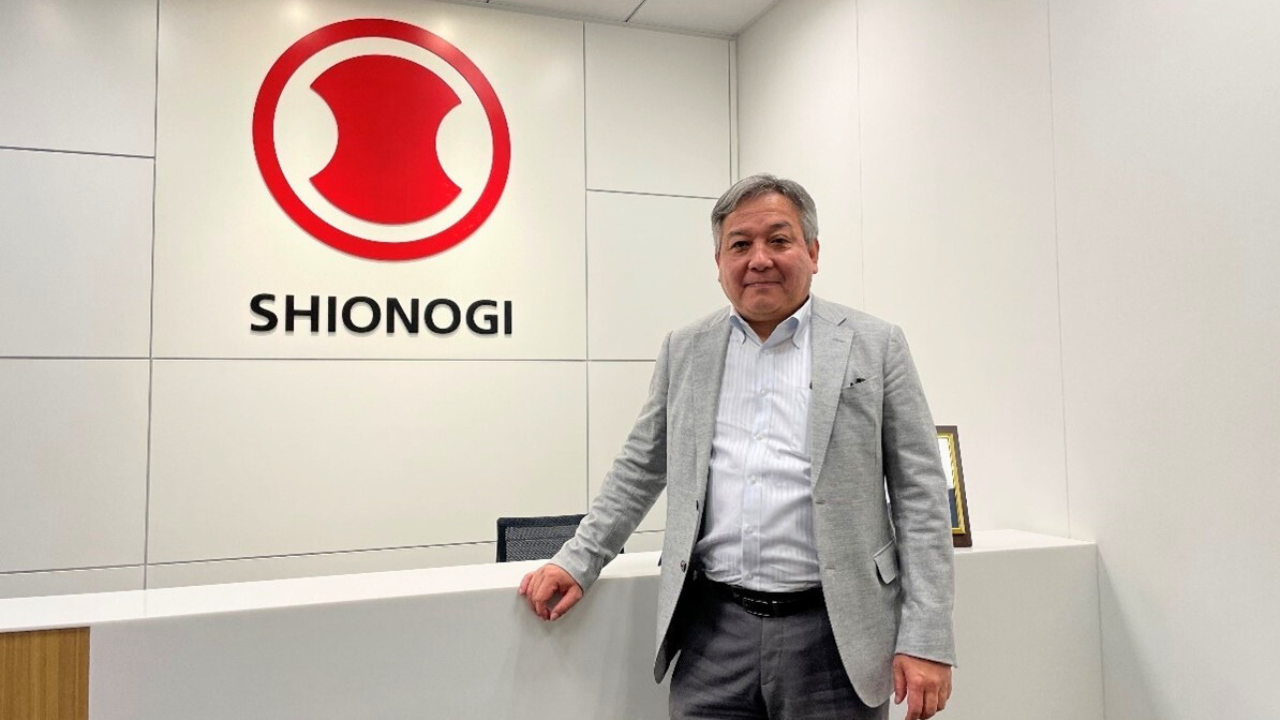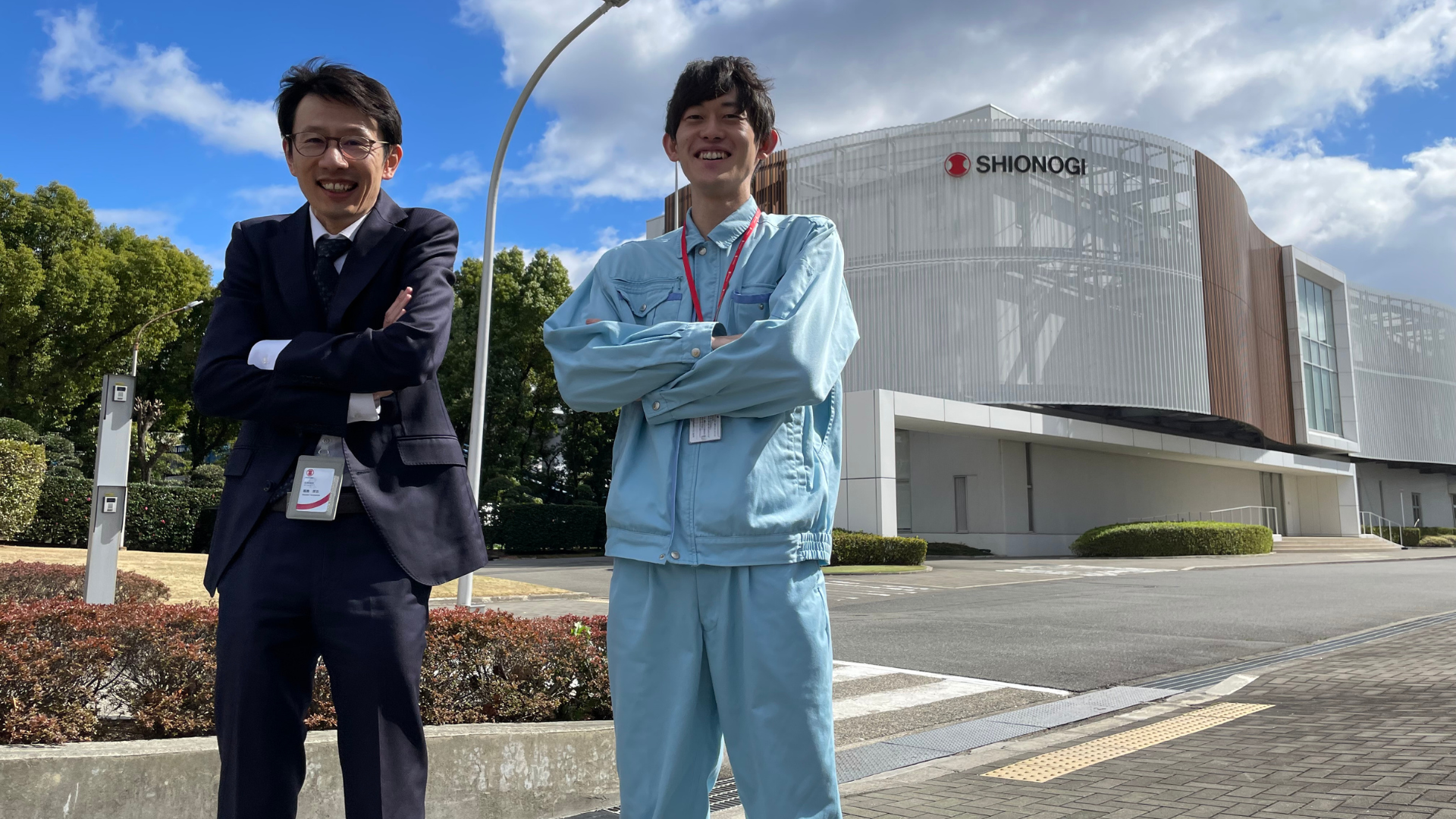Facing Patients Beyond Prescriptions: The Mission and Challenges of the Frontline Medical Information Center
SHIONOGI's "Medical Information Center" serves as a comprehensive contact point for inquiries from healthcare professionals and patients. Our mission is to "deliver optimal healthcare to patients through the appropriate use of pharmaceuticals." We attentively listen to the concerns of those working on the front lines of the medical field, and contribute to the proper and safe use of pharmaceuticals by providing accurate information.
Additionally, we play a crucial role in feeding back the insights gained from our interactions with customers to the relevant departments within the company. By sharing the needs and challenges of the medical field with our research and development departments, we contribute to the development of superior products.
The Medical Information Center, acting as a bridge between healthcare professionals, patients, and the pharmaceutical company, requires a high level of expertise and prompt response capabilities. We interviewed four of our staff members about the types of inquiries they handle, how they utilize this information, and their passion and daily commitment to their work.
From the right in the photo:
Mitsuko Kato: Joined SHIONOGI as a Medical Representative (MR) in sales. In her fourth year, she transferred to the Medical Information Center, where she handles inquiry operations.
Izumi Ogawauchi: Initially joined the Diagnostic Pharmaceuticals Department. In 2015, she transferred to the Medical Information Center following organizational changes. After handling initial inquiries, she is now responsible for training staff who handle the first line of inquiries.
Toshio Mitani: As an MR, he expressed his desire to leverage feedback from the medical field in product development and sales strategies, leading him to join the Medical Information Center.
Kazuto Ota: Transferred from his role as an MR to the Medical Information Center in 2018. He primarily handles inquiry analysis operations.
Addressing the Challenges of the Medical Field with Dedication
What are the trends and characteristics of the inquiries received by the Medical Information Center?
Mitani: About 70% of the inquiries come from pharmacists, followed by 10% from Medical Representatives (MRs), and about 5% from doctors. Additionally, we receive inquiries from pharmaceutical wholesalers and the general public.
Ogawauchi: In the case of MRs, they often bring questions from doctors and contact the center on their behalf. As a result, we also function as a consultation point for doctors.
Could you share specific strategies and mindsets for handling inquiries?
Kato: During my time as an MR, I frequently contacted the Medical Information Center with questions that arose in discussions with pharmacists and doctors. Therefore, I strive to respond to inquiries as promptly as possible. However, some cases require time for thorough investigation. In such instances, I ensure not to provide vague answers. I carefully explain the need for time to deliver accurate information and respond sincerely with "Here is what we know so far," ensuring clarity and honesty.

"One Package" Improved Based on Customer Feedback
How are the inquiries utilized within the company?
Mitani: The inquiries received by the Medical Information Center are shared with relevant internal departments as needed. We aggregate and analyze inquiry trends on a daily, weekly, and monthly basis, and compile reports. By visualizing customer interests and the needs of the medical field, we help the company quickly identify and address issues.

Ota: Feedback and requests from customers are closely coordinated with related internal departments and are used as hints for product improvements. For example, we received numerous complaints within a short period about a certain drug package being more difficult to tear than before. With the cooperation of the relevant departments, we improved the manufacturing process, and the number of similar inquiries dropped significantly. This event highlighted the importance of sharing and utilizing customer feedback within the company.
Can you share specific initiatives regarding teamwork and knowledge sharing?
Mitani: We focus on sharing experiences and knowhow in handling inquiries to ensure that all staff members can respond promptly and accurately. We have started an initiative to organize Q&A not only from the Medical Information Center but also from information managed by other departments, ensuring consistent responses regardless of who handles the inquiry.
By consolidating and organizing information, we aim to provide consistent information to our customers and strengthen collaboration among departments.
Ogawauchi: We also emphasize the transfer of knowledge from veteran employees. For handling difficult cases, we hold study sessions to share experiences. In daily operations, on-the-job training (OJT) is conducted, where veterans pass on their knowledge and skills to younger staff, ensuring consistency and maintaining high-quality responses regardless of who answers the inquiries.
With Patients Beyond Prescriptions in Mind
Do you ever feel a connection to the patients through your interactions with healthcare professionals?
Ogawauchi: Inquiries from healthcare professionals often directly impact patient treatment. We always consider how to convey information in a way that will be most easily understood by the patients on the receiving end. For instance, when responding to inquiries, we try to use the same terminology that healthcare professionals might use with their patients. For example, instead of "enteral administration," we might say "feeding through a tube" or "crushing and dissolving medicine" if that's how the professional explained it. Using their words helps us feel closer to the patients. Our goal is to provide answers that can serve as references during actual prescriptions and patient explanations.

Ota: Everyone at the Medical Information Center feels a strong sense of responsibility and pride in representing SHIONOGI to customers, patients, and healthcare professionals. There is a deep-rooted desire to contribute to proper treatment.
Could you share some moments when you feel fulfilled in your work at the Medical Information Center?
Ota: The Medical Information Center acts as a bridge between the company and its customers. We gather unmet needs from the medical field that MRs might overlook and share them quickly within the company. We focus on thoroughly feeding back significant but less common cases with supporting data. When this effort leads to better pharmaceuticals, it brings a sense of responsibility and fulfillment.
Kato: I feel proud when customers say, "I'm glad I asked SHIONOGI." It is rare for anyone other than MRs in a pharmaceutical company to receive direct words of gratitude from customers. Each of those words fuels our motivation. The more specialized the inquiry, the more I can apply my knowledge and experience. For example, sometimes pharmacists ask about prescriptions they are not fully familiar with. Using our experience and FAQs to clarify issues is highly rewarding, as it shows our continuous learning benefits our customers.
Ogawauchi: Occasionally, customers call intending to raise a concern, but very often the conversation ends with, "I understand now. I'm glad I called." Listening sincerely from the customer's perspective and earnestly tackling problem-solving while demonstrating the company's sincerity is the essence of our work.
Finally, could you share your vision for the future of the Medical Information Center?
Mitani: As mentioned earlier, we are working toward creating a system whereby we can respond to customer inquiries with a one-stop approach by consolidating various internal information. We are also focusing on analyzing inquiry histories to anticipate customer needs and provide proactive information.
Ota: While medical advancements continue, new challenges arise daily in the field. We will continue to listen earnestly to our customers' voices and collaborate with related internal departments to address these challenges. By embracing change and continuously exploring new ways to provide value, we aim to expand the potential of the Medical Information Center.


